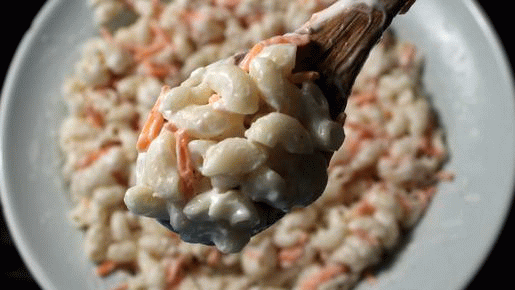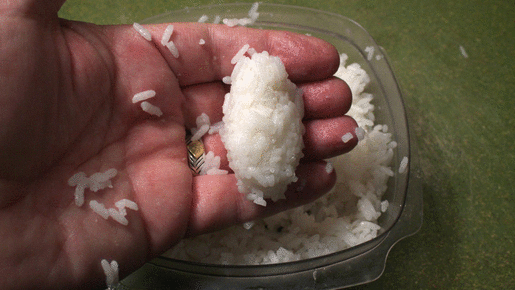Macaroni And Cheese Recall - What You Need To Know
There's something truly comforting about a warm bowl of macaroni and cheese, isn't there? It’s a dish many of us grew up with, a classic that feels like a big, warm hug on a plate. People often think of it as a go-to meal for family gatherings or, like, a simple side dish that makes any dinner feel a bit more special. You know, it's the kind of food that can make a regular evening feel quite delightful, especially when it's made just right, perhaps with a lovely golden top from being baked.
This beloved dish, with its creamy texture and rich, cheesy taste, has a way of bringing smiles. It's often seen as an ideal main course for a family meal, particularly if you're looking for something without meat, or it becomes a very popular addition to almost any holiday spread. From those quick, easy-to-make versions to the ones crafted with a mix of different cheeses and special seasonings, there's a wide world of macaroni and cheese out there, so it's almost a staple in many homes.
However, even our favorite comfort foods can sometimes run into trouble. Lately, there have been some instances where various macaroni and cheese items have been called back from stores. This kind of news can be a bit unsettling for people who enjoy these products regularly. It’s important to stay aware of what's happening with these product call-backs, just to make sure you're keeping yourself and your family safe when you're picking up groceries, you know?
Table of Contents
- What is Macaroni and Cheese, Anyway?
- Why Are Macaroni and Cheese Products Being Recalled?
- Who Is Involved in the Macaroni and Cheese Recall?
- What Kind of Macaroni and Cheese Recall Has Happened?
- What to Do if You Have a Recalled Macaroni and Cheese Product
- How Do Food Agencies Handle a Macaroni and Cheese Recall?
- Understanding the Risks of Macaroni and Cheese Recall
- Staying Informed About Macaroni and Cheese Recall
What is Macaroni and Cheese, Anyway?
Well, macaroni itself is a kind of pasta that looks like thin tubes. It’s typically made from durum wheat, and usually, it's cut into short bits. When you hear "mac and cheese," it usually brings to mind that rich, creamy dish we all know and, like, often love. People make it in so many ways, from quick stovetop versions to those that bake until they're bubbly and golden brown. Some folks really like to mix in a bunch of different cheeses, perhaps even three kinds, with some special seasonings and, say, corkscrew pasta for a truly delightful taste experience.
It's a dish that can really satisfy your hunger, whether you're making a simple macaroni salad or a full-on baked macaroni and cheese. The idea is always to get that ultra-cheesy, extra-creamy goodness that makes it such a dream of a side dish or even, you know, a main course. Our text mentions that some recipes beat out the competition, suggesting there are many ways to get that perfect, comforting feel from this food. It's really quite versatile, in a way.
Why Are Macaroni and Cheese Products Being Recalled?
You might wonder why some of these products are being called back from store shelves. The reasons can vary quite a bit, but they always come down to making sure people are safe. For instance, some macaroni and cheese products have been pulled because of worries about potential bacteria. This means there was a chance that something unwanted might have grown in the food, which, like, nobody wants in their dinner.
Other times, the problem might be spoilage. Our information shows that some items were recalled because there were fears they had gone bad during the trip from where they were made to the stores. This can happen if the temperature isn't kept just right during transport, which, you know, is pretty important for food items. There was also a situation where nearly 200,000 boxes of macaroni and cheese were called back due to a potentially harmful ingredient, which sounds quite serious, doesn't it?
Then there are other concerns, like the discovery of possible metal pieces in some frozen macaroni and cheese bites. Nobody expects to find something like that in their food, so when it happens, companies act quickly. Also, there have been instances where an ingredient, such as egg or even meat components, was present but not listed on the package. This is a big deal for people with allergies or certain dietary needs, so, you know, it's a very important reason for a recall.
Our text also mentions a recall due to high levels of substances called phthalates. These are chemicals that, if present in food at certain levels, can be a worry for consumers. So, as you can see, the reasons for a macaroni and cheese recall are quite varied, but they all point to making sure the food is safe to eat.
Who Is Involved in the Macaroni and Cheese Recall?
When a food product needs to be called back, several groups usually get involved. The Food and Drug Administration, or FDA, often plays a big part. They are the ones who announce many of these call-backs. For example, our text says the FDA announced that Feel Good Foods pulled back their frozen mac & cheese bites because of possible metal bits. They even gave it a "Class II" risk level, which means it's a situation where eating the product could cause temporary or medically reversible health problems, or the chance of a serious health problem is low.
Companies themselves also start these call-backs. Reser’s Fine Foods, for instance, chose to pull back two of their macaroni and cheese items, their American Classic Mac & Cheese and their American Classics Macaroni & Cheese White Cheddar. They did this after finding out that there were problems with the temperature control for these products. This was a choice they made on their own, which is sometimes called a "voluntary" recall. So, it's not always the government telling them what to do; sometimes, they discover an issue and act on it themselves, which is good, you know?
Another company, C.H. Guenther & Son LLC, based in San Antonio, Texas, was involved in a recall of their 365 Whole Foods Market Small Bites Macaroni & Cheese. This happened because someone complained that the packages might have an ingredient, like egg, that wasn't written on the label. They also had to recall some of these bites because they might have had both undeclared eggs and meat ingredients. So, you see, it's often the food makers themselves, working with agencies like the FDA, who take these steps to keep everyone safe.
What Kind of Macaroni and Cheese Recall Has Happened?
There have been a few different kinds of macaroni and cheese products that have been called back. For example, some popular brands of macaroni and cheese sold in big stores like Walmart and Target in five different states had to be pulled. This was due to worries about things going bad, or potential spoilage, as it's sometimes called. Reser’s Fine Foods was one of the companies that started this particular call-back, which affected their American Classic Mac & Cheese and their American Classics Macaroni & Cheese White Cheddar.
Then there were the frozen mac & cheese bites. Feel Good Foods, for instance, had to call back over 4,000 cases of their three cheese mac & cheese bites from the freezer section. The reason for this was the possible presence of foreign objects, specifically metal pieces. Imagine finding something like that in your food; it's quite a shock, isn't it? This particular recall was given a "Class II" risk level by the FDA, which means it was taken quite seriously.
Another type of macaroni and cheese recall involved smaller, bite-sized packages. C.H. Guenther & Son LLC called back their 365 Whole Foods Market Small Bites Macaroni & Cheese. The concern here was that these bites might have had egg in them, but it wasn't listed on the package. Later, it was also found that these same bites might have contained both undeclared eggs and meat ingredients. This is especially important for people who have allergies or specific dietary choices, so, like, it's a very important issue.
Our text also points to a recall of macaroni and cheese due to high levels of phthalates, which are chemical substances. This is a different kind of worry, but it’s still about making sure the food is healthy to eat. So, whether it's full-sized boxes, frozen bites, or smaller portions, different kinds of macaroni and cheese products have been affected by these call-backs for a variety of reasons, you know?
What to Do if You Have a Recalled Macaroni and Cheese Product
If you happen to find out that a macaroni and cheese product you bought has been called back, the most important thing to do is not eat it. Our information is very clear on this point: anyone who has the product at home is urged not to consume it. It's really that simple. Even if it looks fine or smells okay, the reasons for the recall mean there's a risk involved, so, like, it's just not worth taking a chance.
What you should do next depends a little on the specific instructions for that recall, but generally, you should get rid of the product. Sometimes, companies ask you to return it to the store where you bought it for a refund. Other times, they might tell you to just throw it away. It's always a good idea to check the specific recall notice for the exact steps to take. This helps to make sure that the product doesn't accidentally get eaten by anyone, which is the main goal, you know?
How Do Food Agencies Handle a Macaroni and Cheese Recall?
When there's a worry about a food product, agencies like the FDA step in. They work with the companies that make the food to figure out what happened and how to deal with it. Our text mentions that the FDA announced some of these call-backs, sometimes giving them a risk level, like "Class II." This classification helps people understand how serious the situation might be. They look at things like what the problem is, how likely it is to cause harm, and what kind of harm it could cause.
These agencies also work with other public health partners, such as the Centers for Disease Control and Prevention, or CDC. Together, they gather information, investigate the issue, and make sure the public knows what's going on. They try to get the word out quickly and clearly, so people can take steps to protect themselves. It's a pretty coordinated effort, actually, to keep the food supply safe for everyone.
Understanding the Risks of Macaroni and Cheese Recall
When a macaroni and cheese product is called back, it's usually because there's a chance it could make someone unwell. For example, if there's bacteria, it could cause digestive problems or other kinds of sickness. If there are undeclared allergens, like egg, someone with an allergy could have a serious reaction, which is a very big worry. And, like, finding metal pieces in food is obviously not something anyone wants, as it could cause injuries.
The risks vary depending on the specific problem. For instance, spoilage might just mean the food tastes bad, but it could also mean harmful things have grown in it. Issues like phthalates or "potentially harmful ingredients" point to longer-term health worries. So, when these notices come out, it's really about making sure people avoid anything that could cause them trouble, even if they don't feel sick right away. It's about looking after your well-being in the long run, you know?
Staying Informed About Macaroni and Cheese Recall
Keeping up with food call-backs is a good idea for anyone who buys groceries. The FDA's website is a primary place where these notices are published. Our text mentions that some reports, like an updated FDA report about macaroni and cheese, might not be widely known until a bit later, but the information does become available. So, checking official sources is a pretty reliable way to stay in the know.
Many news outlets also report on these kinds of events, so you might hear about them through local news channels or online articles. Being aware of the reasons behind a macaroni and cheese recall, whether it's for something like undeclared ingredients, spoilage, or other worries, helps you make better choices when you're at the store. It's all about being a bit more informed to look after yourself and your family, really.
- Theodore Norman Howard Gabel
- Olivia Munn Breast Cancer
- Parker Foster Aiken
- Rfk Jr Blackmail
- James Cameron Spouse

The 99 Cent Chef: Macaroni Salad and Sticky Rice - Hawaiian Recipes

The 99 Cent Chef: Macaroni Salad and Sticky Rice - Hawaiian Recipes

The 99 Cent Chef: April 2016